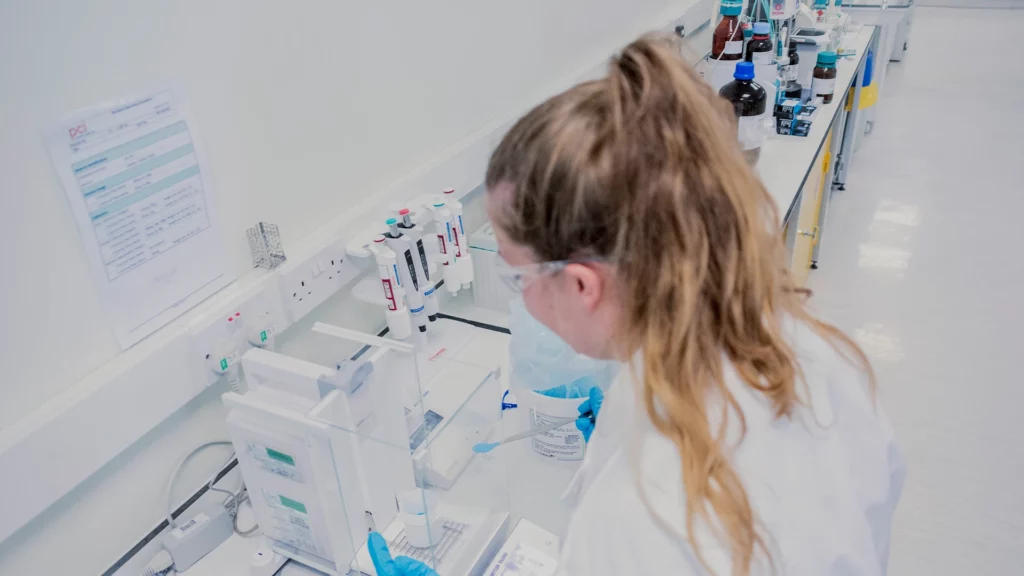Article
February 26, 2025
The Scientific Research & Experimental Development (SR&ED) Program
Innovation drives the growth and evolution of the global pharmaceutical landscape, powering advancements in the provision of life changing therapies. The current research and development (R&D) pipeline holds immense potential to revolutionize care across a broad spectrum of disease areas.
However, the journey from preclinical testing to marketing approval is resource-intensive and costly, with clinical trial expenses often reaching staggering levels. As a result, sponsors face mounting pressure from regulatory agencies, the medical community, and the public to balance these costs while achieving critical objectives. These include accelerating development timelines, expanding therapeutic pipelines, enhancing drug quality and safety, and adhering to increasingly stringent regulatory requirements.

SR&ED Tax Credits
The Canadian Government believes society is bettered by encouraging innovation and the pursuit of scientific and technological discoveries and as such offers generous tax incentives to encourage Canadian businesses to conduct R&D in Canada, irrespective of size, industry sector, or field of technology.
The Scientific Research and Experimental Development (SR&ED) Program is a federal tax incentive program which is given to organizations concerned in the systematic investigation or search, carried out in the field of science and or technology to advance scientific knowledge or to achieve technological advancement.
SR&ED is currently the largest single source of federal government support for Canadian R&D providing more than $4.2 billion in tax incentives to over 20,000 claimants annually – 85% of which are small to medium sized entities. The SR&ED program provides two tax incentives:
1. A deduction to reduce the income for tax purposes – A business can deduct the SR&ED expenditures to reduce their tax liability in the current year or carry these expenditures forward indefinitely to reduce their tax liability in future years
2. An investment tax credit – A business can receive a SR&ED investment tax credit that may be refundable and/or used to reduce taxes payable
To qualify the work carried out must fall into one of three categories:
- Scientific Advancement: Technology, characteristic, or capability does not currently exist and is not readily available in standard practice
- Scientific Uncertainty: A qualified person overcame challenges and could not predict the outcome with their existing knowledge
- Scientific Content: The work was performed in a systematic or iterative process with documentation
Who is Eligible?
The SR&ED tax incentive program provides tax incentives for the direct in-house costs of performing eligible R&D work in Canada.
The businesses that are eligible under the SR&ED program fall into three groups:
- Canadian-controlled private corporations
- Other corporations
- Proprietorships (individuals), partnerships and trusts
Eligible expenses include: wages and salaries of employees directly engaged in the eligible R&D work, overhead expenditures, and materials.
The SR&ED program also allows for the inclusion of the following expenses:
- Expenditures from Canadian contractors performed on behalf of the claimant
- Salaries and wages incurred by the firm on SR&ED activities
- Overhead costs, which may be calculated by the business or by a simple proxy method
These features make Canada’s SR&ED program truly one of the most generous and accessible R&D tax incentives in the industrialized world.
How much can be claimed?
A Canadian-controlled private corporation (CCPC) can earn a refundable Investment Tax Credit (ITC) at the enhanced rate of 35% of up to $3M of qualified SR&ED expenditure and at a reduced rate of 15% for expenditure above $3 million; with 40% of the ITCs eligible for refund.
How can companies parented outside of Canada qualify?
Through a Canadian subsidiary of a foreign parent – a Canadian subsidiary, performing eligible R&D work in Canada for itself or on a contractual basis for the foreign owned parent.
Clinical Trial Tax Reductions in Canada
- Canada’s R&D tax treatment is one of the most favourable in the world 2,3 (PwC, KPMG)
- SRED program can amount to a 15% tax credit on eligible R&D expenditure1
- Canada’s SRED tax credit can significantly reduce the cost of clinical trials in Canada
- Total tax credits range from 15% to 32% on eligible R&D expenses
- Individual provinces have additional tax incentives of 3.5% to 30%1
References:
- SRED April 2014 factsheet
- KPMG R&S incentives and services – adding value across the Americas, 2012 ed.
- https://www.canada.ca/en/revenue-agency/campaigns/supporting-research-development.html
We are committed to supporting clients at every stage of the manufacturing cycle, delivering best-in-class services efficiently and effectively.
Find out more about our fully integrated Clinical Trial Services.




